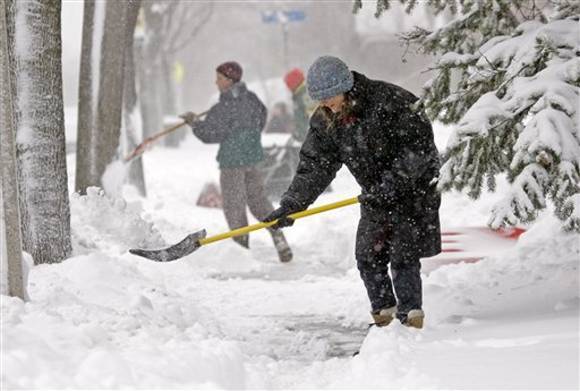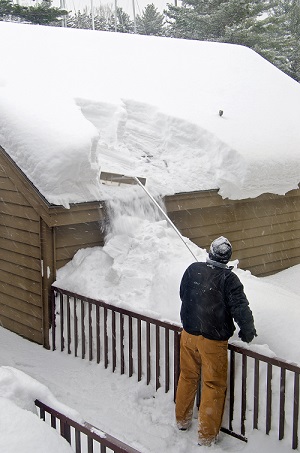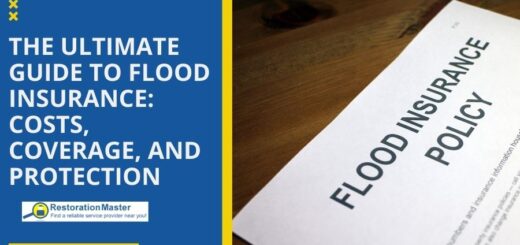Why You Should Consider Flood Insurance for Your Rental Property
Water damage is a likelihood in all properties, whether they are rented or fully owned. Floods can infiltrate a property via numerous methods. Natural catastrophes, like hurricanes, overflowed river banks and heavy rainstorms, are known to cause large-scale floods. Manmade disasters, from burst pipes to leaky appliances, are also responsible for floodingFlooding is the overflow or accumulation of water in areas t... More.
In the United States, 20 to 50 percent of people rent a property. Flood insurance for rental properties, however, is limited to only two percent of renters. Given that floodingFlooding is the overflow or accumulation of water in areas t... More can occur at anytime and anywhere, renters should consider buying flood insurance to protect themselves financially.
FloodingFlooding is the overflow or accumulation of water in areas t... More is one of the most prevalent forms of natural disasters. Flash floods are rampant in high-risk areas but floodingFlooding is the overflow or accumulation of water in areas t... More can occur without warning in all 50 states. Plus, the average renter owns about $20,000 worth of goods. Flood insurance ensures the contents in a rental property are covered in a disaster.
Reason #1: Rental insurance does not cover floodingFlooding is the overflow or accumulation of water in areas t... More.
Standard rental insurance fails to cover most instances of water damage. Renters can prepare for floodingFlooding is the overflow or accumulation of water in areas t... More and its associated damages by purchasing a separate flood insurance policy. The National Flood Insurance Program (NFIP) is the single insurance program that helps property owners recover from floodingFlooding is the overflow or accumulation of water in areas t... More.
Typical rental insurance policies may cover certain types of minimal water damage, like a water leak that destroys a renter’s belongings. However, with the prevalence of numerous, alternate causes of water damage, purchasing a separate flood insurance policy is a practical and advisable measure.
Reason #2: Flood insurance is affordable.

The reason flood insurance is cost-efficient for renters is that these occupants do not own the property.
Costing on average less than $100 per year for contents-only protection, flood insurance can be inexpensive. The affordable sum should prompt every renter to purchase flood insurance. The peace of mind flood insurance provides is invaluable to renters who prize financial security.
Flood insurance premiums may be based on several factors. The flood risk (or flood zone), location of belongings, occupancy rate, date of building construction and number of floors in the structureStructure refers to the framework or components of a buildin... More all go toward calculating the flood insurance premiums for renters.
The NFIP regulates and sets flood insurance policy rates. Renters in low-risk areas may qualify for a Preferred Risk Policy and its discounted premiums. Renters may also be eligible for significantly reduced premiums by participating in the Community Rating System program.
The reason flood insurance is cost-efficient for renters is that these occupants do not own the property. Still, renters should avoid holding off on purchasing a policy. Even when a massive storm unexpectedly hits, flood insurance coverage only goes into effect 30 days after the purchase of the policy.
Reason #3: Flood insurance covers a rental home’s contents.
When a rental property or any part of it is damaged by floodingFlooding is the overflow or accumulation of water in areas t... More, the flood insurance kicks in to cover property losses. Flood insurance compensates the renter for any damages associated with the floodingFlooding is the overflow or accumulation of water in areas t... More, like damage to the building’s physical structureStructure refers to the framework or components of a buildin... More, electrical systems, plumbing and detached garage.
Additional examples of goods flood insurance covers include washers and dryers, artwork, freezers and their food contents, clothes, electronics, window air conditioners, curtains and portable microwave ovens. Carpets are also covered if not included as part of the building’s insurance coverage.
If a rental home is damaged by floodingFlooding is the overflow or accumulation of water in areas t... More, flood insurance will not pay for the replacement of the home; rather, the policy reimburses the home’s cash value. For example, renters who installed a new roof with a 20-year lifespan a decade ago receive compensation for half of the replacement costs.
While invaluable to renters, flood insurance does not cover certain items. Decks, pools and fences are examples of structures that flood insurance fails to cover. If the landscaping or pool is destroyed by floodingFlooding is the overflow or accumulation of water in areas t... More, the renter must pay for the recovery of these structures out of pocket.
Reason #4: Federal aid helps minimally after a flood.
Relying on federal aid for losses related to floods is impractical, especially since FEMA aid must be repaid. Plus, accepted federal aid applicants may find themselves being required to carry supplemental insurance in the future. In such cases, federal assistance carries strings that renters are wise to avoid.
Reason #5: Low-risk flood zones still flood.
Renters with properties located in high-risk flood zones are not mandated to purchase flood insurance—as most homeowners are. Renters in low- or moderate-risk areas should still buy extra protection, since one quarter of all flood insurance claims are made outside high-risk flood areas.
Reason #6: Policies are equally available to landlords and tenants.
Landlords and tenants are reimbursed when floods cause damage. Managed properties are covered, with flood insurance compensating landlords with the cash value of the property. An apartment building, for instance, will be covered by the landlord’s flood insurance; the apartment’s contents are covered by the tenant’s flood insurance.
When parts of your rental unit are underwater, due to plumbing leaks or natural disasters, restoring your water damaged property will require specialized services. Consult a professional water and flood damage restoration company for efficient and swift service.
Water damage is a serious issue. Structural weakness results when building materials are saturated with water. MoldMold is a type of fungus that grows in damp or humid conditi... More infestations can flourish within 24-48 hours of water damage. Plus, depending on the source of water, dangerous pathogensPathogens are microorganisms such as bacteria, viruses, or f... More teeming in the water can contaminate the living space.
Water damage restorationWater damage restoration is the professional process of clea... More professionals are prepared with cutting-edge equipment and skilled manpower to eliminate the excess water from your rental property fast. Technicians arrive onsite to assess the damage. Powerful dehumidifiers and air movers are set up to thoroughly dry the area. Finally, a sanitization process is conducted to thwart bacterial growth. Specialists are also available to assist with filing flood insurance claims.












